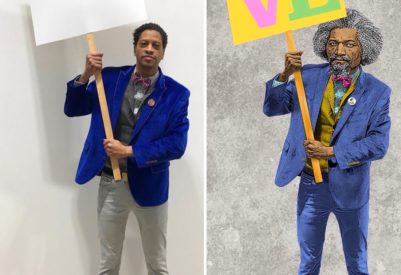
Rochester, NY- Bank of America says US economy is hurt by a lack of workforce diversity.
The Supreme Court’s decision in Students for Fair Admissions, Inc. v. President & Fellows of Harvard College and Students for Fair Admissions, Inc. v. University of North Carolina (collectively SFFA), in a 6-3 majority opinion authored by Chief Justice John Roberts, held that the race-conscious admissions programs at Harvard and the University of North Carolina (UNC) violate federal law. The potential impact on the diversity of the student population in higher education is apparent. However, the decision in SFFA, while limited to the admissions realm on its face, may have far-reaching implications for affirmative action and diversity, equity, and inclusion (DEI) programs beyond higher education admissions.
The bank’s study pointed out, if US business and government leaders had decided more than 30 years ago to take action on diversity and inclusion, about $70 trillion would have been added to the nation’s economic output.
In 2019, for example, closing the gender and race gaps would have generated $2.6 trillion of additional U.S. economic output, while a continuation of racial inequality may cost the country between $1 trillion and $1.5 trillion in lost consumption and investment over the next decade, the bank said.
Companies in the S&P 500 Index with above-median gender diversity on their boards generally report a 15% higher return on equity, and those with ethnically and racially diversified workforces tend to show an 8% higher return on equity, according to Bank of America’s research. More diverse companies also encounter lower earnings risks relative to less-diverse peers.
Citigroup Inc. said in a report last year that closing racial gaps in the U.S. would have generated an additional $16 trillion of economic output since the start of the century. And, in the next five years, the U.S. could add $5 trillion of economic activity by closing the gaps between Black and White Americans, the bank said.
US companies are leaving $1.05 trillion dollars on the table by not being more inclusive, according to a new report from global professional services company Accenture. That missed financial opportunity comes down to not enough companies prioritizing inclusion.
"If leaders prioritize a culture of equality now, they will see that doing so helps generate the financial results they want and need," Accenture CEO Julie Sweet wrote in the report.
Analysts found that companies where many employees felt engaged were more likely to demonstrate higher profit growth. Closing the gap by 50%, or making employees feel more included, pointed to a 33% increase in global profit growth for businesses. For US companies, that looks like a profit increase of about $1.05 trillion. Analysts found this number by using regression models and simulations to calculate profit increase as well as savings due to lower employee turnover.
One McKinsey report showed that companies in the top quartile for racial/ethnic and gender diversity were respectively 35 and 15 percent more likely to have financial returns above their respective national industry medians. In the U.S., for every 10 percent increase in racial and ethnic diversity amongst leadership, earnings rose 0.8 percent.
The study also stated, being Black In Corporate America: An Intersectional Exploration — was conducted by the National Opinion Research Center, at the University of Chicago under the auspices of the Center for Talent Innovation, a nonprofit research organization.
• Blacks represent less than 1 percentage point (0.8 percent) of Fortune 500 CEOs. “With blacks making up 10 percent of college graduates, you would think there would be 50 black CEOs. But there are only four,” Jain-Link said, referring to Lowe’s, TIAA, Merck & Co., and Tapestry.
• Only 3.2 percent of executives and senior manager-level employees are African American.
• On average, 58 percent of blacks indicated they feel racism on their jobs, with the Midwest having the highest percentage at 79 percent and the Northeast the lowest at 44 percent.
• Thirty-eight percent of black millennials say they are considering leaving their jobs to start their own company.





